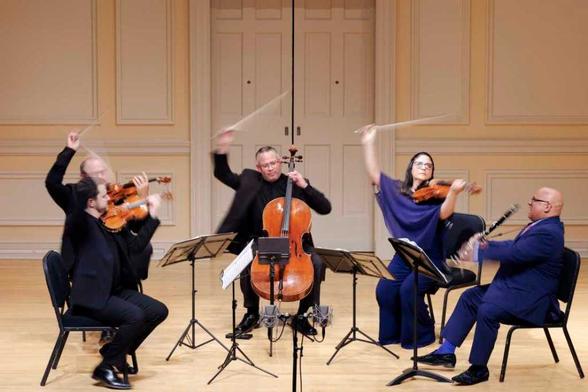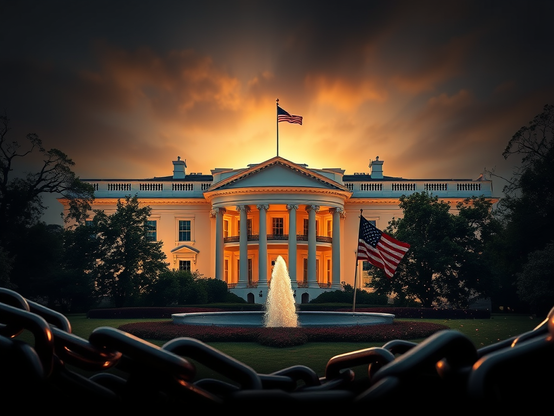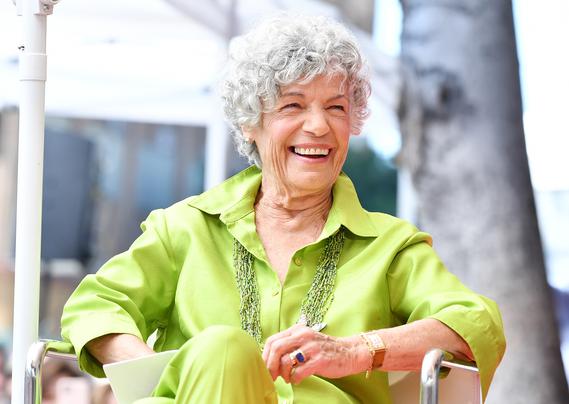#media #NPR #entertainment
#media #NPR #entertainment
When to step back from a difficult relationship – National Public Radio (NPR)
Life Kit, Tools To Help You Get It Together
How to decide whether to step back from a difficult relationship — or stick it out
October 28, 20254:01 PM ET, By Marielle Segarra, Clare Marie Schneider, and Malaka Gharib
nadia_bormotova/Getty ImagesYou have a strained relationship with your father, but he recently developed health issues and needs someone to care for him. You don’t feel emotionally fulfilled in your marriage, but you’ve been with your partner for 10 years. You’ve made a new friend who’s nice most of the time, but is mean when she’s angry.
Life Kit, Frustrated by a relationship? Questions to ask yourself to move forward
Should you step back from these relationships or stick them out?
These are the kinds of dilemmas that therapist KC Davis tackles in her book published earlier this year, Who Deserves Your Love: How to Create Boundaries to Start, Strengthen or End Any Relationship. It offers practical advice on how to move forward when relationships with family members, romantic partners or friends become difficult.
The book features a flowchart that Davis calls “The Relationship Decision Tree.” It consists of questions that Davis asks clients when their loved ones are behaving in a way that bothers them. It helps them “make decisions about whether to lean into this relationship or disengage,” she says.
Davis, author of the best-selling book How to Keep House While Drowning, talks through a few questions adapted from her framework.
KC Davis is a therapist and the author of Who Deserves Your Love: How to Create Boundaries to Start, Strengthen, or End Any Relationship. Left: Julia Soefer/Right: S&S / Simon ElementWhy is this behavior objectionable to you?
This question can help you pinpoint exactly what’s “bothering you about a person you love,” Davis says, because often there are many reasons. Parsing through the “why” can help you decide how to proceed.
Let’s say your roommate isn’t doing their chores. Ask yourself what annoys you specifically about that behavior, Davis says. Is it just something you don’t like, or is it actually hurtful or harmful?
Are they willing to change?
Once you start digging deeper, you might find that those dirty dishes in the sink “actually directly impacts me negatively,” Davis says. Maybe they’re starting to attract bugs.
Your next move is to have a conversation with your roommate. Are they willing to change their behavior? They may not do things exactly your way, so work on a solution together. Maybe you strike a deal where they cook and you clean, or they commit to doing the dishes before the end of the night.
Life Kit, This 5-step method can quickly get a messy house back in order
Does staying in this relationship violate my values?
Your most important values are your physical safety, your psychological safety and the physical and psychological safety of minor children, Davis says. “If I cannot meet those responsibilities, then it’s against my values to continue in this relationship.”
You may have other core values as well, like the safety of a dependent parent or sibling, or the keeping of your sobriety.
Would leaving this relationship violate my values?
What happens if staying in the relationship doesn’t violate your values, but you still don’t want to maintain the relationship?
Editor’s Note: Read the rest of the story, at the below link.
Continue/Read Original Article Here: When to step back from a difficult relationship : NPR
#2025 #Behavior #Change #Education #Health #KCDavis #Libraries #Library #LifeKit #NationalPublicRadio #NPR #Relationships #Science #StepBack #StrainedRelationship #UnitedStates #values #WhoDeservesYourLove
One of music’s best kept secrets celebrates 100 years, quietly – NPR
One of music’s best kept secrets celebrates 100 years, quietly
The story of Coolidge Auditorium, at the Library of Congress, is one of American ingenuity, cultural integrity and a century of free concerts.
October 25, 20258:18 AM ET, Heard on Weekend Edition Saturday
Tom Huizenga 6-Minute Listen Transcript
The Dalí Quartet, accompanied by Ricardo Morales on clarinet, performs during the Library of Congress’ Stradivari concert in Coolidge Auditorium in 2023. The Library was given a rare set of Stradivarius instruments in 1935.Shawn Miller/Library of Congress
The year is 1925. The Great Gatsby is published, the jazz age is swinging, and on October 28th, a new concert hall opens at an unlikely spot — the Library of Congress, in Washington D.C. If only its cream-colored walls could talk. For 100 years, performers of all stripes have graced the Library stage, from classical music luminaries like Béla Bartók and Igor Stravinsky to Stevie Wonder, Audra McDonald and Max Roach. Today, it remains one of the capitol city’s most beautiful, best sounding and perhaps best kept secrets.
The idea for a concert hall at the Library of Congress did not stem from congress. It came from philanthropist Elizabeth Sprague Coolidge — and one bespoke piece of bipartisan legislation. “She was indefatigable and intrepid,” says Anne McLean, senior producer for concerts at the Library, “a remarkable woman, six feet tall, a brilliant pianist.” McLean is sitting with me on the stage, overlooking the empty auditorium. To mark the centennial, celebratory concerts and commissions have been heard in the hall all year. But not now. The government shutdown has forced the hall to close its doors, and unless a deal is reached before Tuesday, it’ll be closed on the anniversary itself.
Coolidge was born into a wealthy Chicago family in 1864. She studied music, traveled abroad, married a Harvard-trained orthopedic surgeon and, in 1924, came to Washington to establish a foothold in the nation’s capitol. She approached Carl Engel, the Library’s music chief, about the possibility of adding a small concert hall to the Library’s voluptuous — and voluminous — Thomas Jefferson building, designed after the Paris opera house and completed in 1897. You can’t see the hall from the outside, as it’s tucked inside the building’s Northwest Courtyard.
In 1924, Elizabeth Sprague Coolidge wrote her first check to the Librarian of Congress, Herbert Putnam, to begin the construction of a new auditorium.Eager to get started, Coolidge wrote a check for $60,000 to the Librarian of Congress, Herbert Putnam, on Nov. 12, 1924. And yet there was no legal mechanism in place for a civilian to make such a monetary gift to the U.S. government. Congress worked quickly, taking only a little over a month to pass a bill allowing such a contribution.
It took less than six months to build the hall itself — the intimate, 485-seat Coolidge Auditorium, with its warm precise acoustics. “There are a lot of secrets to it,” McLean says. “The back wall of the auditorium is slightly shaved to be concave and extremely responsive to string sound. Underneath the stage is hollow. But that hollowness is a factor, as is the cork floor, which was very unusual for its time.” McLean says the sound blossoms in the hall. Keen to spread the sound far and wide, Coolidge even had the building wired for the relatively new medium of radio. She added to her initial sum to establish a fund for the commissioning of new music. Engel dubbed her “The Fairy-God-Mother of Music.”
Construction of Coolidge Auditorium, at the Library of Congress, began in May, 1925. It was finished in time for the very first concert on Oct. 28 of that year. Library of CongressCoolidge was well-connected and fiercely advocated for music. In 1944, she took to the local Washington airwaves with another bold idea. “I could wish for music, the same governmental protection that is given to hygiene, education or public welfare,” she said over WTOP. “How wonderful, if we could have in the cabinet, a secretary of fine arts.”
Coolidge never got her wish, but what she had already created was arguably more important — a living, breathing concert hall that serves as a cultural beacon — preserving history and cultivating new music through commissions.
The Martha Graham Dance Company performs the world premiere of Aaron Copland’s Appalachian Spring on the stage of the Coolidge Auditorium on Oct. 30, 1944. Elizabeth Sprague Coolidge Foundation Collection / Library of CongressPerhaps the most famous commission became one of America’s most iconic pieces of music. Aaron Copland‘s ballet Appalachian Spring, written for dancer and choreographer Martha Graham, received its world premiere at Coolidge Auditorium on Oct. 30, 1944. “I think people knew what they were hearing,” McLean says. The ballet would win the Pulitzer prize for music the following year, along with the New York Music Critics Circle Award. It’s hard to imagine a full ballet produced on Coolidge’s modestly-sized stage.
Continue/Read Original Article Here: One of music’s best kept secrets celebrates 100 years, quietly : NPR
#100Years #AaronCopland #CoolidgeAuditorium #Culture #FreeConcerts #Ingenuity #LibraryOfCongress #MarthaGraham #Music #NationalPublicRadio #NPR #TomHuizenga #WeekendEdition
How Trump Upended 60 Years of Civil Rights – The New York Times
How Trump Upended 60 Years of Civil Rights
The White House’s assault on federal protections may bring about a new era of unchecked discrimination.
Get the Transcript: https://www.nytimes.com/2025/10/21/podcasts/trump-civil-rights-dei.html?showTranscript=1
Continue/Read Original Article Here: How Trump Upended 60 Years of Civil Rights – The New York Times
#2025 #America #AmericansRights #Books #CivilRights #CNN #DonaldTrump #Education #Health #History #Libraries #Library #LibraryOfCongress #NationalPublicRadio #Opinion #Politics #Reading #Resistance #RuleOfLaw #Science #Technology #TheNewYorkTimes #Trump #TrumpAdministration #TrumpDestroys #USConstitution #UnitedStates #VotingRightsAct #YouTube
https://www.npr.org/2025/10/20/nx-s1-5580328/kenny-loggins-donald-trump-ai-video
#KennyLoggins #musician #NationalPublicRadio #NPR
"Why more parents are riding cargo bikes, skipping the minivan” - report by
Jacob Fenston, #NationalPublicRadio - 6-minute audio with transcript
"It's such a better start to my day, that now there's truly not weather that I would rather drive in." https://www.npr.org/2025/10/18/nx-s1-5532087/why-some-parents-are-ditching-minivans-for-cargo-bikes
#NPR #CargoBikes #BikeToSchool #parents #children #BikeCommuter
Letters from an American – October 18, 2025 – Heather Cox Richardson
Letters from an American, October 18, 2025
By Heather Cox Richardson, Oct 18, 2025
Today, millions of Americans and their allies turned out across the United States and around the globe to demonstrate their commitment to American democracy and their opposition to a president and an administration apparently bent on replacing that democracy with a dictatorship.
Administration loyalists tried to claim the No Kings protests would be “hate America” rallies of “the pro-Hamas wing and Antifa people.” Texas governor Greg Abbott deployed the Texas National Guard ahead of the No Kings Day protests, warning that “[v]iolence and destruction will never be tolerated in Texas.”
In fact, protesters turned out waving American flags and wearing frog and unicorn and banana costumes and carrying homemade signs that demanded the release of the Epstein files and defended Lady Liberty. They laughed and danced and took selfies and sang. City police departments, including those of New York City, San Diego, and Washington, D.C., said they had made no protest-related arrests.
In Oakland, California, Mother Jones senior editor Michael Mechanic interviewed a man named Justin, asking him if, as a Black man, he had particular concerns about the actions of the Trump administration.
Justin answered: “You know…a lot of times I have a hopeless feeling, but…being out here today just reminds me about the beauty of America and American protests. And, you know, the fact that they tried to…stomp on this, step on this, you know, say it’s non-American, because that’s what I’ve been reading a lot about. No, this is the point of America right here: to be able to have this opportunity to protest…. [This] does not look like Antifa, Hamas, none of this stuff that they’re talking about…. [Y]ou know, this is the beauty of America.”
The No Kings demonstrations ran the gamut from hundreds of thousands of protesters in large, blue cities, to smaller crowds in small towns in Republican-dominated states. Together, they demonstrate that the administration’s claims to popularity are a lie. Such a high turnout means businesses and institutions that thought they must cater to the administration to appeal to a majority of Americans will be forced to recalculate.
And the protests showed that Americans care fervently about democracy.
Today, millions of Americans and their allies turned out across the United States and around the globe to demonstrate their commitment to American democracy and their opposition to a president and an administration apparently bent on replacing democracy with a dictatorship.
[Photo, “History has its eyes on U.S.” anonymous photographer, Boston, Massachusetts, October 18, 2025]
[Photo, “History has its eyes on U.S.” anonymous photographer, Boston, Massachusetts, October 18, 2025]See Notes and Links online…
Continue/Read Original Article Here: October 18, 2025 – by Heather Cox Richardson
#2025 #America #CNN #DonaldTrump #Education #Film #Health #HeatherCoxRichardson #History #LettersFromAnAmerican #Libraries #LibraryOfCongress #NationalPublicRadio #NoDictators #NoKings #NoKingsDay #NoNazis #October18 #Opinion #Politics #Protests #Resistance #Science #Television #TheWashingtonPost #Trump #TrumpAdministration #UnitedStates #YouTube
PBS head lays out how bleak this is all about to get – AV Club
PBS head lays out how bleak this is all about to get
CEO Paula Krieger also pushed back on the idea that PBS would begin altering content to appease the White House: “They’ve already taken away our funding.”
By William Hughes | October 17, 2025 | 6:15pm
The Public Broadcasting Service is not in good shape at the moment, to put it mildly: We’re swiftly coming up on November, when the broadcaster would normally get its life-sustaining infusion of funds from the government-backed Corporation for Public Broadcasting. Except, of course, the CPB has been basically demolished over the last few months; as we’ve previously reported, Congress (at the guidance of the White House) voted to remove more than a billion dollars in public funds from the organization, which funds both local PBS and NPR stations and the overall organization. We’ve already reported on individual PBS broadcasters, like New Jersey’s, preparing to shutter; now, PBS head Paula Krieger has given a new interview to Variety where she reveals just how bleak this is going to get.
Noting that she’s been worried the most about smaller stations—often serving markets where they’re one of the only primary news outlets—Krieger has said her focus of late has been on putting together enough money to give those channels a “glide path,” hopefully one that results in some kind of survival, and not, well, the other standard outcome of a controlled plummet toward the ground.
- Alien returns to Earth in time for it all to go wrong
- Dexter: Resurrection repairs a once-great franchise’s legacy
- Jerry Seinfeld compares “Free Palestine” to the KKK: “The Klan is actually a little better here”
Here’s Krieger:
Some of the smaller stations are looking at coming together in some sort of shared agreement, which would change the way they operate, but would keep local media in communities around the country. I think that’s a really good model. There are some stations that are looking at merging with an adjacent station and serving a larger market. And then I think there will be some that will find this a bridge too far and will decide not to continue.
- New Jersey PBS will shut down next year due to budget cuts
- PBS cuts 15 percent of its workforce amid federal budget cuts
One way or another, though, change is coming to public broadcasting, because it’s simply inevitable with that kind of loss of funds. (Krieger says she holds out hope that Congress might someday walk back these cuts, but is honest about the fact that no “white knight” is going to come in and save PBS.) She also expressed some mild frustration at the suggestion that PBS has tried to curtail or edit the creators working under it in order to curry favor with legislators or the executive. (Who went ballistic, in the lead-up to the cuts, to things like local channels airing segments about drag story hours at libraries.) “They’ve already taken away our funding. I think if there was a risk of that, you would have seen it before, which we obviously did not do… I just feel like we have been buffeted through this entire year, and we have not held back from the programs that we put forward.”
Programming-wise, Krieger noted that the reduced funding will, obviously, impact which national PBS programs are tapped to continue, with top priority going to NewsHour. “Obviously, the first priority is PBS NewsHour, because that’s an ongoing news operation where you’re burning through money all the time,” according to Krieger. “And we’re looking at some of the big series where CPB was helpful, like Nova, Nature and Great Performances.” But programs like American Experience are probably screwed, at least in the short-term; the series—which recently caught flack after one of its directors accused PBS of cutting a politically charged Ronald Reagan quote from an episode—is set to go on hiatus once it finishes airing its current Kissinger series.
- 3 new songs and 3 new albums to listen to this weekend
- R.I.P. Diane Keaton
- PBS head lays out how bleak this is all about to get
Continue/Read Original Article Here: PBS head lays out how bleak this is all about to get – AV Club
#2025 #America #CorporationForPublicBroadcasting #DonaldTrump #Education #Films #Health #History #Libraries #Library #LibraryOfCongress #NationalPublicRadio #NPR #Opinion #Politics #Resistance #Science #Technology #Television #Trump #TrumpAdministration #UnitedStates
7 surprising ways the library can help you save money – Life Kit – NPR
Kaz Fantone / NPRLife Kit Tools To Help You Get It Together
7 surprising ways the public library can save you money
Updated October 14, 202510:56 AM ET
By Marielle Segarra, Audrey Nguyen
This story was originally published on Oct. 16, 2023, and has been updated.
Everyone knows you can save money on books by checking them out at the library instead of buying them. But did you know that libraries can help you save on other things too?
Life Kit
How the local library can save you money
In some locations, you can borrow tools (saving a purchase at the hardware store), take free language classes and even get free tickets to local museums and attractions.
The resources that your library has to offer will depend on its size and funding, which comes in part from taxpayer dollars and donor funds. These perks are part of the public library’s mission to serve the needs of the local community, says Joan Johnson, library director at Milwaukee Public Library. “Libraries are one of the most important parts of the social infrastructure. The possibilities for how you explore are endless.”
To take advantage of these money-saving benefits, sign up for a library card, says Mychal Threets, a librarian, literacy advocate and the new host of PBS’ Reading Rainbow. Then check out the library website or simply walk into your local library and talk to a librarian.
Here are 7 surprising ways the library can help you save money.
1. Before you buy something, see if you can borrow it from the library
Libraries offer all kinds of items on loan. “Video games, musical instruments, board games. Some libraries have bakeware collections where you can get baking pans,” says Threets.
Akhila Bhat, branch manager at Harris County Public Library in Katy, Texas, says her library system has a seed library. “Patrons can pick up seeds to start a garden and drop off seeds for others to take home and plant.”
Meanwhile, libraries like the Providence Public Library in Rhode Island have tools you can check out. That includes a cordless drill, safety goggles and a laser level.
2. Reserve free tickets to local museums and attractions
In some places, you can get free or discounted tickets to local attractions in your city or town. The Nashville Public Library, for example, offers free tickets to the Country Music Hall of Fame (saving patrons $31.95 in admission fees). And library card holders in California can gain free entry to over 200 state parks, saving patrons $20 in entry fees.
3. Print out your documents at a discount
You can use the computers to print out documents like plane tickets, concert tickets or shipping labels. There’s usually a small fee, but it’s often cheaper than printing at an office supply store or a shipping center, says Threets. For example, it costs 10 cents to print a page in black and white at the Brooklyn Public Library in New York, and 26 cents at Fedex.
Continue/Read Original Article Here: 7 surprising ways the library can help you save money : Life Kit : NPR
#2025 #America #Borrow #DonTBuyFirst #Education #FreeTickets #Libraries #Library #LifeKit #MoneyMatters #NationalPublicRadio #NPR #Printing #PublicLibraries #SavingMoney #UnitedStates
Susan Stamberg, Pioneering NPR Journalist, Dies at 87







